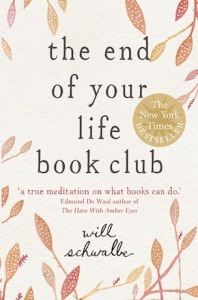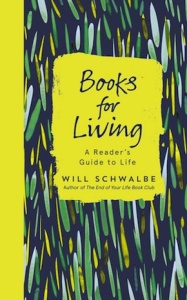In defence of book learning
by Brett MarieRunning for President in 1952, Illinois Governor Adlai Stevenson came up with a peculiar rallying cry. “Eggheads of the world, unite!” he declared in a stump speech. “You have nothing to lose but your yolks!” These days, of course, such a bad pun wouldn’t make it out of a Democratic Party focus group alive, but sixty-five years ago, it served its purpose. Stevenson was widely known for his keen intelligence, and in an era when Red-baiting Senator Joseph McCarthy reached the peak of his popularity by stoking Americans’ base fears of communism, a counterweight was needed – someone had to stand up in defence of intellectualism and good sense, to bring the country’s raging anti-communist fever down.
Stevenson was swimming against the current; the country already had its heart set on his opponent, World War II General Dwight D. Eisenhower, and not even the most cogent arguments were about to change the national mind. But though voters buried him in an Eisenhower landslide, his grace and intelligence in the campaign limelight were an inspiration to liberals and moderates alike, and earned him universal and enduring respect.
Reading the introduction to Will Schwalbe’s delightful Books for Living, I felt echoes of Stevenson when I came to the author’s statement of purpose: “This book you are now reading is a manifesto of sorts,” writes Schwalbe, “a manifesto for readers. Because I think we need to read and to be readers now more than ever.”
Granted, Schwalbe’s statement doesn’t have the cornball zing that got Stevenson into Bartlett’s, but he is asking the same thing of his readers that Stevenson was trying to get from voters. Throughout his opening – and throughout the book – Schwalbe cries out for a kinder, more reflective, more understanding human discourse, and seeks to demonstrate just how instrumental books can be in shaping human minds to make that discourse possible.
There’s no better example of literature’s mind-altering powers than Schwalbe’s own brain. “I’m on a search,” he writes, “to find books to help me make sense of the world, to help me become a better person, to help me get my head around the big questions that I have and answer some of the small ones while I’m at it.” And so after his impassioned opening thesis, Schwalbe proceeds to sketch a map of his lifelong philosophical journey – a path paved with the pages of a thousand books. Though well over a hundred books and authors get name-checked, Schwalbe keeps things concise by focusing on just twenty-six titles, each of which gets its own chapter, along with the value or life lesson the chosen work illuminated for him.
Can a book change the world? Schwalbe clearly thinks so. ‘Books can echo for centuries into the future,’ he writes…”
He starts with a non-fiction favourite, The Importance of Living by Lin Yutang. He returns often to that book, calling it the closest thing he’s encountered to that ‘Holy Grail’ volume that holds the answers to all life’s questions (it ponders, among other things, the pressing conundrum of how best to lie in bed). But though he begins on the Self-Help shelf, he’s happy to pluck his wisdom from just about anything between two covers. It’s possible, for instance, that “a random sentence in a thriller will give me unexpected insight.” And so, three chapters in, he learns about Trusting from Paula Hawkins’ 2015 thriller The Girl on the Train.
 The book-per-chapter format has already served the author well; Schwalbe won high praise and a months-long stint on the New York Times bestseller list for The End of Your Life Book Club, a memoir about the death of his mother from pancreatic cancer, told through the books he and she read as she underwent treatments to extend her life. Books for Living can’t match the urgency inherent in such a narrative arc, but its broader, more open-ended subject allows Schwalbe to cull from his entire life. The tack he chooses, darting from one life experience to another, holding up salient memories and portraits of mentors from his past like items in a rummage sale of life lessons, works just fine.
The book-per-chapter format has already served the author well; Schwalbe won high praise and a months-long stint on the New York Times bestseller list for The End of Your Life Book Club, a memoir about the death of his mother from pancreatic cancer, told through the books he and she read as she underwent treatments to extend her life. Books for Living can’t match the urgency inherent in such a narrative arc, but its broader, more open-ended subject allows Schwalbe to cull from his entire life. The tack he chooses, darting from one life experience to another, holding up salient memories and portraits of mentors from his past like items in a rummage sale of life lessons, works just fine.
Mostly it works because Schwalbe is generous, sharing far more, in richer detail, than readers strictly require to get his point across. Whether telling an amusing childhood story to illustrate what Stuart Little taught him about the value of searching, or showing how Giovanni’s Room helped him come to terms with his sexuality, or openly prodding his feelings of loss – and guilt – at the deaths of friends (through David Copperfield and Rebecca), his unflinching frankness saves his philosophical declarations from reading like mere platitudes. Summing up his chapter on David Copperfield and the value of remembering, he writes, “I try to choose happy. I try to choose life.” It’s the deeply poignant story he tells beforehand, of a dear friend he lost suddenly and unexpectedly, in the young man’s prime, that gives these closing sentences their weight.
I first read Books for Living the week that the ugliest presidential election campaign in generations reached its tumultuous conclusion. Now, two months after a national argument ought to have been settled, the shouting just keeps getting louder. I’m not usually one for rereading books, even ones I love, until they’ve had years to seep through the cracks of my memory. But ahead of the kick-off to a presidency that promises to divide Americans more than ever in our lifetimes, while friends and family were diving down the rabbit-holes of Russian hacking, fake news and Pizzagate, I happily plunged back in. I felt as though I were reconnecting with a friend, and emerged wearing a smile that’s far too big for this hour in history.
Can a book change the world? Schwalbe clearly thinks so. “Books can echo for centuries into the future,” he writes, and then tells us about Henry Green, whose novels hardly sold in his lifetime, but who went on to influence icons from Anthony Burgess to John Updike. But for a book to change the world, it has to change minds, and in an era when we consume our news ready-made to suit our politics, taking in only the truths we have our hearts set on believing, to change even one mind can seem like an impossibility. I only hope that history will prove my fears wrong. In the meantime, I’ll take comfort in Books for Living. Along with anyone else who’s grown accustomed to the cry “Get your nose out of that book!”, I’ll remind myself there’s merit to my literary compulsion, that there are people out there still interested in cultivating wisdom, and there’s no end to the number of books waiting to supply it.
Around the time he was writing Of Mice and Men (not mentioned by Schwalbe, but a Book for Living if I ever read one), John Steinbeck wrote in his journal, “If you understand each other you will be kind to each other. Knowing a man well never leads to hate and almost always leads to love.” Understanding: there’s such a damned dearth of it these days, I’ve been inclined to wonder if we’ve lost the ability to attain it. But Schwalbe invites us to try, and in so doing reminds us that, however strong the opposing tide, there are eggheads in this post-truth world still striving with us.
 Will Schwalbe has worked in publishing for many years. He is the author of the international bestseller, The End of Your Life Book Club and co-author (with David Shipley) of Send: Why People Email So Badly and How to Do It Better. He has also worked in digital media, and was the founder of Cookstr.com. As a journalist he has written for the New York Times and the South China Morning Post. He lives in New York City. Books for Living is published by Two Roads.
Will Schwalbe has worked in publishing for many years. He is the author of the international bestseller, The End of Your Life Book Club and co-author (with David Shipley) of Send: Why People Email So Badly and How to Do It Better. He has also worked in digital media, and was the founder of Cookstr.com. As a journalist he has written for the New York Times and the South China Morning Post. He lives in New York City. Books for Living is published by Two Roads.
Read more.
willschwalbe.com
@WillSch
Brett Marie, also known as Mat Treiber, grew up in Montreal with an American father and a British mother and currently lives in Herefordshire. His short stories such as ‘Sex Education’, ‘The Squeegee Man’ and ‘Black Dress’ and other works have appeared in publications including The New Plains Review, The Impressment Gang and Bookanista, where he is a contributing editor. He recently completed his first novel The Upsetter Blog.
Facebook: Brett Marie
@brettmarie1979


